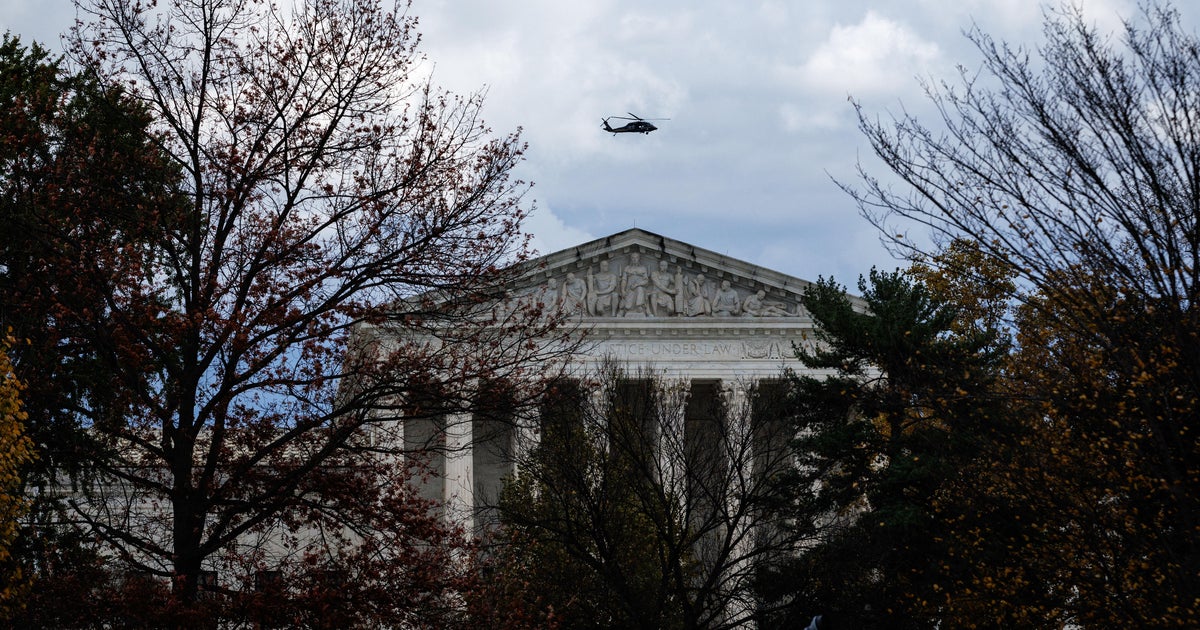
Washington — The Supreme Court on Friday said it will consider the constitutionality of the Federal Communications Commission’s Universal Service Fund, agreeing to review a lower court decision that upended the mechanism for funding programs that provide communications services to rural areas, low-income communities and schools, libraries and hospitals.
The dispute is the latest in which the high court will consider the power of federal agencies. Among the issues in the case is whether Congress delegated too much authority to the FCC when it tasked the agency with determining how much telecommunications providers must contribute to the Universal Service Fund. The court also asked the lawyers involved in the case to argue whether it is moot because the challengers did not seek preliminary relief before the lower court.
The Supreme Court’s conservative majority has in a string of recent decisions taken aim at federal regulatory power amid efforts by the conservative legal movement to rein in the so-called administrative state. In a major ruling in June, the court overruled a 40-year-old decision that said courts should give agencies leeway in interpreting ambiguous laws passed by Congress if their interpretation is reasonable.
Arguments in this dispute will likely take place early next year, with a decision expected by the end of June.
The Universal Service Fund was created by Congress in 1996 as part of an overhaul of the Communications Act of 1934, which sought to promote competition and get rid of monopolies in the telecommunications industry. Under the revamped law, the FCC created a set of programs supported by the Universal Service Fund that require contributions from telecommunications providers.
Those programs ensure schools, libraries, rural health care facilities and rural and low-income customers have access to telecommunications services, and the FCC uses the money in the fund to subsidize the provision of telephone and broadband services.
Quarterly contributions to the fund are based on projected expenses the programs will incur, as well as projected revenue from telecommunications carriers, a number that is known as the contribution factor. Companies may pass the cost of their contributions on to consumers.
In 1997, the FCC created the Universal Service Administrative Company, a private, not-for-profit corporation that administers the fund. The company sends out bills and collects contributions from service providers, and disburses money to program beneficiaries.
In late 2021, the company proposed each carrier would contribute to the fund 25.2% of its interstate and international telecommunications revenue for the first quarter of November 2022. But a nonprofit called Consumers’ Research, telecommunications company, and group of consumers filed a comment challenging the contribution mechanism, arguing Congress had unconstitutionally delegated its legislative power to the FCC, which in turn redelegated power to the Universal Service Administrative Company. They then sought review by the U.S. Court of Appeals for the 5th Circuit.
A three-judge panel of judges rejected the group’s claim that Congress and then the FCC had unconstitutionally delegated their authority.
But the full complement of judges on the 5th Circuit agreed to rehear the case and in a July decision, sided with the challengers in a 9-7 vote. It found that when carriers seek reimbursements of their fund contributions from consumers, they are levying a “universal service” tax on consumers that appears on their phone bills.
The power to tax is a legislative power, and the 5th Circuit’s majority found that Congress gave the FCC too much discretion in determining the amount of universal service contributions. It also ruled that the FCC, in turn, “may have impermissibly delegated the taxing power to private entities.”
“American telecommunications consumers are subject to a multi-billion-dollar tax nobody voted for. The size of that tax is de facto determined by a trade group staffed by industry insiders with no semblance of accountability to the public. And the trade group in turn relies on projections made by its private, for-profit constituent companies, all of which stand to profit from every single tax increase,” the 5th Circuit found, adding the “combination of delegations, subdelegations, and obfuscations of the USF Tax mechanism offends” the Constitution.
The 5th Circuit’s decision set off a wave of pushback from the telecommunications industry, which warned it would hamper efforts to close the digital divide.
A group of telecommunications trade groups said the ruling “could put at risk the availability and affordability of essential communications services for millions of rural Americans, low-income consumers, and community anchor institutions.”
Before the 5th Circuit ruled, the Supreme Court turned down two appeals from Consumers’ Research of decisions from the 6th and 11th Circuits that rejected its challenges to the Universal Service Fund. But following the 5th Circuit’s decision, the group urged the Supreme Court to reconsider its appeals. The court has not acted on those requests.
